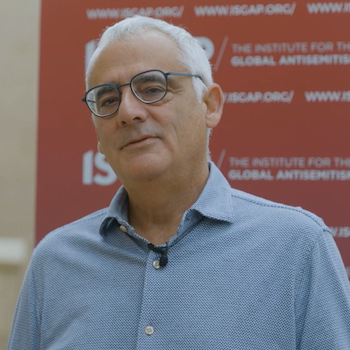
Fueling Chaos: The Flow of Tax-Exempt Dollars to Antisemitism
The integrity of American higher education faces a significant threat, not from the usual suspects, but from within. This threat is perpetuated by the insidious influx of foreign funding that fosters antisemitism and undermines democratic values. It is crucial to halt the unchecked flow of tax-exempt dollars to entities that spread antisemitism, extremism, and anti-democratic ideologies.
For over a decade, the Institute for the Study of Global Antisemitism and Policy (ISGAP) has been investigating the covert influence of foreign funds on U.S. universities. Our research, particularly the “Follow the Money” series, highlights concerning trends. In 2019, we identified $3 billion in undisclosed foreign funding linked to entities associated with the Muslim Brotherhood and terror financing. Recent findings have only amplified these concerns, revealing a troubling connection between foreign donations and compromised academic integrity.
U.S. universities that enjoy tax-exempt status are legally required to report substantial foreign donations. However, transparency is often lacking. Many institutions fail to disclose gifts exceeding $250,000, including contracts and agreements, as mandated by law. This lack of enforcement endangers the core values of higher education, allowing foreign powers to interfere without oversight.
Consider the case of Texas A&M University and its partnership with the Qatar Foundation. Our 2023 report, “Hijacking Higher Education,” revealed that Qatar controls sensitive research and has access to the personal data of students. This revelation was so alarming that the Texas A&M Board of Regents decided to close its Doha campus. Yet, this is just one example of how foreign interests are shaping academic environments to serve their agendas.
Qatar’s influence on U.S. higher education is unprecedented. Through significant investments, Qatar exercises considerable soft power via its various foundations, such as the Qatar Foundation and Qatar Foundation International. These entities disguise state funding as private donations, thereby evading transparency and scrutiny.
Qatar’s support extends to organizations and ideologies that are hostile to democratic values and supportive of anti-American and antisemitic rhetoric. Qatar, a haven for extremist ideologies—including those of the Muslim Brotherhood, Hamas, and other radical actors—has historically sought to undermine democratic societies. By funding U.S. universities, Qatar ensures its ideological influences permeate academic institutions.
The impact of these foreign funds is not confined to university campuses. Antisemitism has surged in academic settings, particularly following Hamas’s attack on Israel in October of last year. Organizations like National Students for Justice in Palestine (NSJP) have openly supported Hamas and antisemitic ideologies. They operate with minimal oversight, receiving significant funding from tax-exempt entities linked to extremist causes. The NSJP’s activities and their financial backing from groups like American Muslims for Palestine (AMP) and WESPAC further illustrate the troubling intersections of foreign money and domestic antisemitism.
The same patterns of influence extend into K-12 education. Programs funded by Qatar Foundation International (QFI) are shaping the narratives that students receive about Israel and antisemitism. For instance, the Choices Program, supported by QFI, distorts the historical and geopolitical context of the Middle East, subtly promoting anti-Israel sentiments among young students.
Addressing these serious issues requires urgent action. Congress must begin by obtaining and thoroughly reviewing financial reports from the Qatar Foundation and Qatar Foundation International. Transparency is critical, and public disclosures should be mandated for all funding sources and agreements involving Qatar and its affiliates. This measure will ensure that foreign influence is visible and subject to public scrutiny.
Additionally, the U.S. Department of Education should investigate the non-reporting of foreign donations by U.S. universities, with a particular focus on potential criminal actions for systematic underreporting. Establishing ethics review boards at universities would also be crucial in monitoring foreign funding and preventing partnerships that compromise institutional integrity. These boards should assess the acceptability of donations and partnerships to ensure they align with academic values and standards.
Furthermore, fiscal sponsors of organizations like the National Students for Justice in Palestine and the American Muslims for Palestine should be required to disclose their financial information fully. The Internal Revenue Service must investigate whether these entities are adhering to charitable regulations and reporting requirements. Organizations that directly or indirectly support antisemitic or extremist causes should face suspension of their tax-exempt status.
The integrity of our academic institutions is a reflection of our democratic values. As perhaps the most important institution in our society, it is where young Americans learn to become citizens. By influencing university education, one can transform the entire society. Therefore, it is imperative that we take decisive action to ensure these institutions remain spaces for genuine intellectual exploration and debate, free from the corrosive influence of foreign money and extremist ideologies. By implementing these measures, we not only protect the values of higher education but also reaffirm our commitment to combating antisemitism and preserving the principles of justice and truth.
Editor’s note: Texas A&M University has denied any undue influence by the Qatar Foundation and insisted that any claims made by the Institute for the Study of Global Antisemitism and Policy (ISGAP) are “false and irresponsible.”
